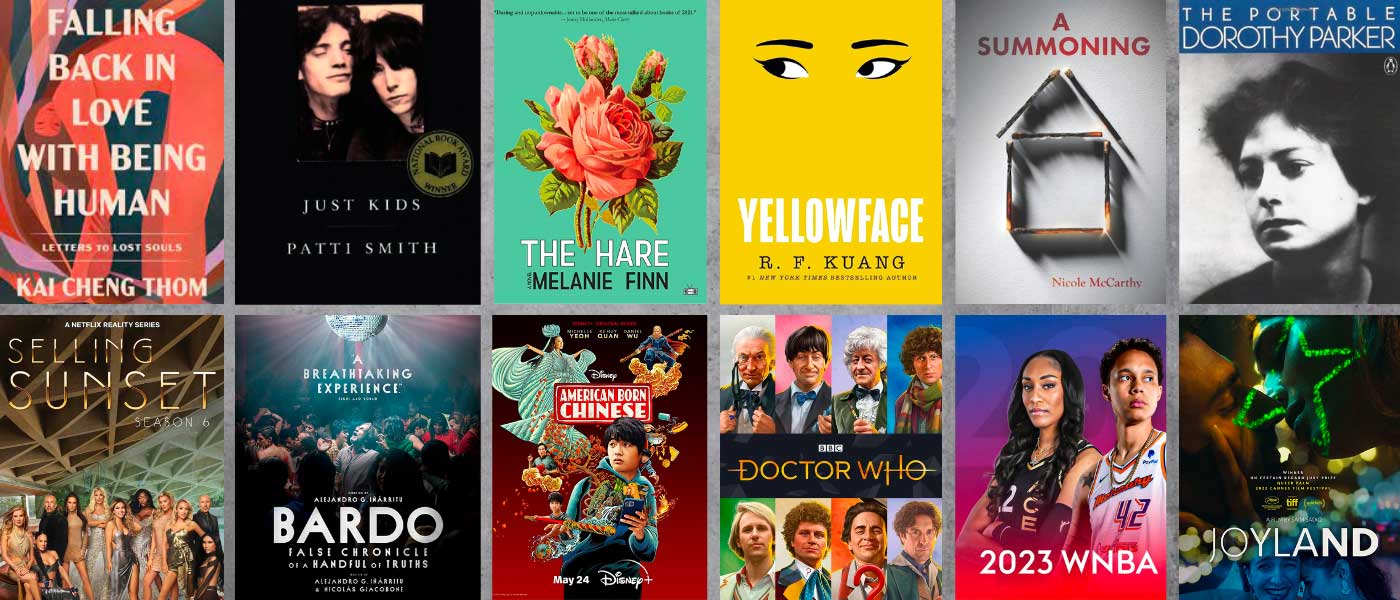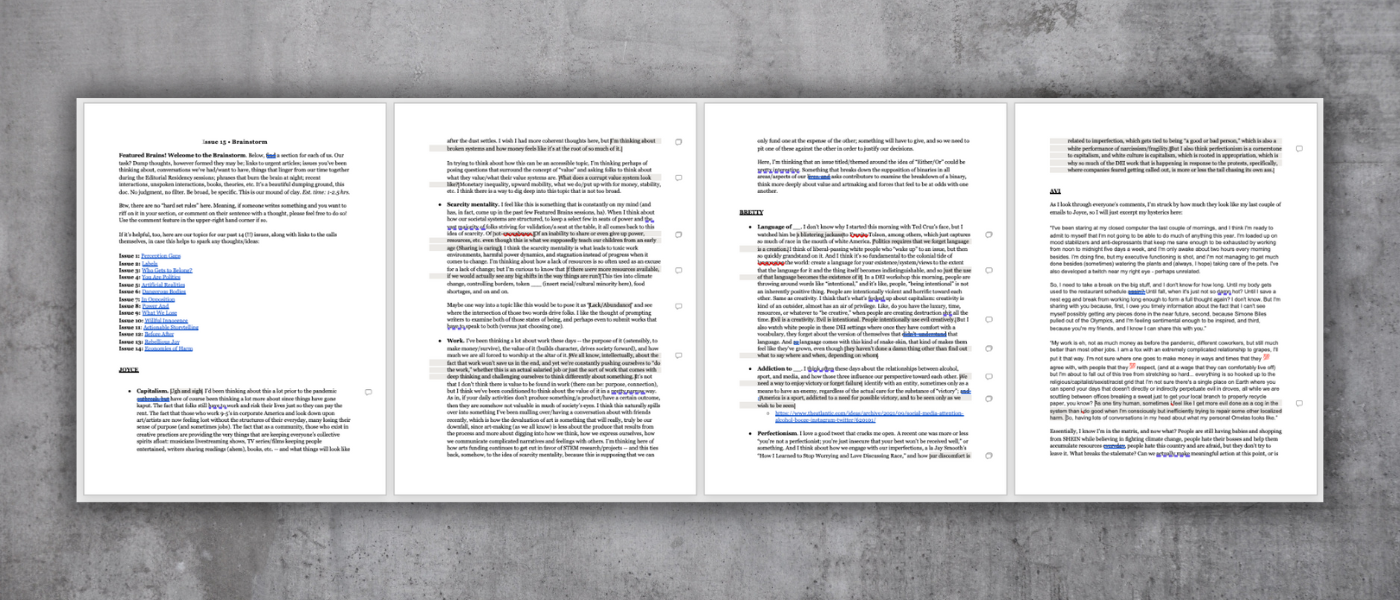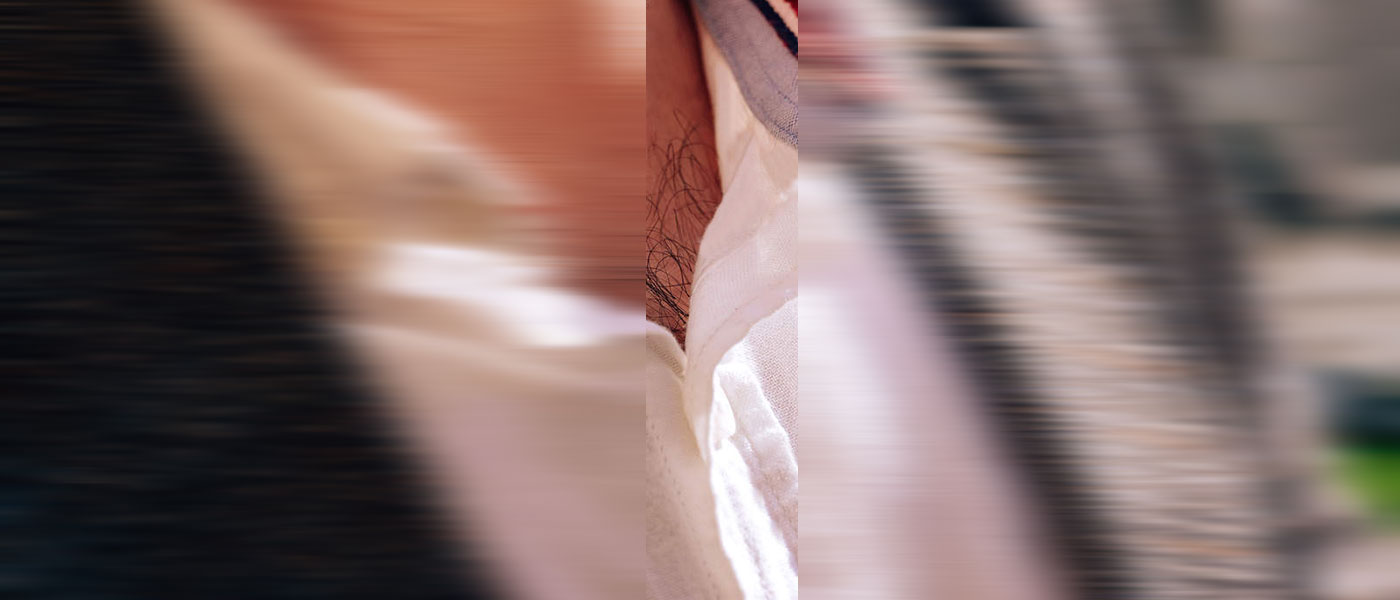
Sanna Wani’s debut collection, My Grief, the Sun (House of Anansi Press, 2022): “Sanna Wani’s My Grief, the Sun makes such a convincing case for astonishment as a way of life. Each poem enveloped me with so much tenderness it was as if I were the sun! The theological music that courses throughout the book was not a narrowing toward some esoteric knowledge but rather an opening toward a collective sense of enmeshment with the inscrutable world. This book is a necessary reminder that ‘there is something inside / [us] that says live.’ My Grief, the Sun is a wonder and a delight.” —Billy-Ray Belcourt
Sanna is the 2023-2024 Artist in Residence at The Seventh Wave.
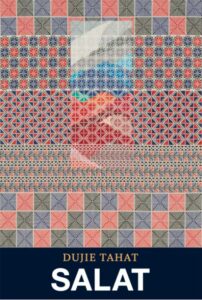
Dujie Tahat’s debut chapbook, Salat (Tupelo Press, 2020):
“Dujie Tahat’s Salat is a book of poems written in a compelling new form of the poet’s own invention that participate, fully — they praise, weep, spit, beg, laugh, choke, sing. In this murderous age it is increasingly unconscionable to be inert, in one’s living or in one’s art. Tahat tells us: ‘There’s a river in heaven, and I am the star that belongs to it.’ Salat is boisterously, resoundingly alive.” —Kaveh Akbar
You can read three of Dujie’s poems we published in Issue 9: What We Lose. You can also order Dujie’s second collection, Balikbayan, here.
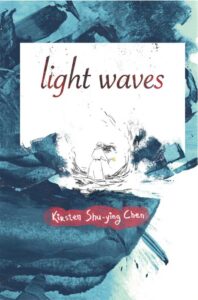
Kirsten Shu-ying Chen’s debut collection, Light Waves (Terrapin Press, 2023):
“Kirsten Shu-ying Chen’s searing debut collection offers a poignant exploration of the liminal space between what is holy and what is prosaic. Formalistically rich and varied, these poems do not blink in the face of grief, but shelter there. Chen ‘curse[s] the wide width of the wound’ and creates a world in which her poems link arms to enter the blistering present. A demonstration of the daily rituals of love, these elegies swell with humanity as death draws near. ‘The body knows. / The night knows and the body listens.’ Light waves simultaneously reminds us of what we already know and what we too often forget: there just isn’t enough time, and yet, an abundance of joy is everywhere, for each of us.” —Omotara James
Read Kirsten’s poem “Hubble Deep Field” from Issue 1: Perception Gaps.

Omotara James’ debut chapbook, Daughter Tongue (Akshic Books, 2018):
Omotara’s Daughter Tongue is a part of the New-Generation African Poets: A Chapbook Box Set (Tano). This limited-edition box set is an annual project started in 2014 to ensure the publication of up to a dozen chapbooks by African poets through Akashic Books. The series seeks to identify the best poetry written by African poets working today, and it is especially interested in featuring poets who have not yet published their first full-length book of poetry. Of Omotara’s chapbook, DéLana R.A. Dameron writes, “Omotara James’ chapbook Daughter Tongue tells many stories at once…the stories of a daughter trying to find words to make the unsayable said and heard and seen.”
Read two poems by Omotara James in Issue 6: Dangerous Bodies. You can also pre-order Omotara’s Song of my Softening.

Bill Carty’s collection, Huge Cloudy (Octopus Books, 2019):
Bill Carty’s Huge Cloudy waves its arms around a weather map like an octopus as meteorologist—ridiculously smart, smartly ridiculous. This book pays homage to daily absurdity, to relishing in the delight of what makes us human. These poems loiter around in shops, ships, stoops, bounding spheres—at once profound and hilarious: ‘Wore my blue / shirt today. / It was too blue. / Gave me away.’ Carty’s language is stunning in its strangeness: ‘bollix birthed,’ ‘butterfly split by lightning,’ ‘plum-purple, we were, / lucking into new years.’ Images turn corners with ‘animal velocity,’ so that we have to stop, look up, and declare: wait, what did I just read?” —Jane Wong
Read four of Bill’s poems that we published in Issue 15: Root Systems.

Dena Igusti’s debut chapbook, Cut Woman (Game Over Books, 2020):
“In a post-colonial world shaped by what is and what will be lost, what is there left to celebrate? In Dena Igusti’s debut collection Cut Woman, Igusti is overwhelmed by the loss of their people. The loss includes but is not limited to: the deaths of Muslims around the world due to xenophobia and Islamophobia; the deaths of Indonesians as a result of post-colonialism, state violence, environmental racism, and overall media negligence and prioritization of white people over their own; the mortality of friends, lovers, and family facing economic disparity and gentrification in New York City; the loss of their body that could’ve been their body if they didn’t undergo female genital mutilation. They know that one day, their time will be up too. Rather than stay in mourning, they try to turn these wakes, both current and future, into the biggest celebrations of their life.”
Read three poems of Dena’s we published in Issue 12: Before After.
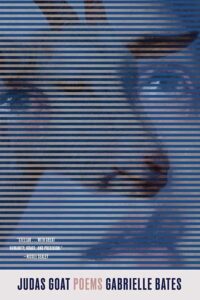
Gabrielle Bates’ debut collection, Judas Goat (Tin House, 2023):
“Gabrielle Bates’s electric debut collection Judas Goat plumbs the depths of intimate relationships. The book’s eponymous animal is used to lead sheep to slaughter while its own life is spared, and its harrowing existence echoes through this spellbinding collection of forty poems, which wrestle with betrayal and forced obedience, violence and young womanhood, and the ‘forbidden felt language’ of sexual and sacred love. These poems conjure encounters with figures from scriptures, domesticated animals eyeing the wild, and mothering as a shapeshifting, spectral force; they question what it means to love another person and how to exorcise childhood fears. All the while, the Deep South haunts, and no matter how far away the speaker moves, the South always draws her back home.”
Gabrielle was the Featured Artist for Issue 9: What We Lose. See her artwork.
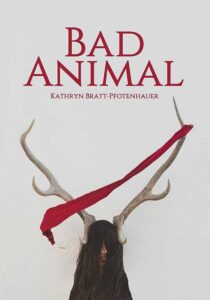
Kathryn Bratt-Pfotenhauer’s debut collection, Bad Animal (Riot in Your Throat Press, 2023):
“Bad Animal is a collection of poems about the body, about violence, about safety, a meditation on love, sex, and death. It explores the body’s changing relationship to desire in the aftermath of incredible sexual trauma, and how we societally reconcile the beauty of the world we live in with intense emotional pain. Bad Animal is a collection of poems that remind the reader we are all made of flesh and bone and while flesh is temporary and fragile, bone is hard and resilient: both are needed to be whole. Nature is present throughout these poems which echoes the real world—a world that needs both vulture and carcass, a world that needs both dark and light.”
Read Kathryn’s poem, “Sometimes Daughter,” in Issue 15: Root Systems.

Laura Buccieri’s debut chapbook, On Being Mistaken (PANK, 2018):
“On Being Mistaken renders the magazine, microagression, and catcall fragment, as the speaker attempts to escape gendered expectations only to find all paths to actualization begin, and end, in the world around us. Buccieri’s debut chapbook wrestles with critical and pervasive questions—investigating gender & sexuality, the locus of our too-human desires, and the complexities of enacting otherness within systems. These coming-of-age stories and love poems reject the finality of a sentence. Instead, the poet turns the Western treatment of women back on itself through syntactic blending and multiplicity. Buccieri’s sprawling work is experimental and original, and her voice is utterly captivating. If we must struggle to define, if we are forever labeled, if we are forever held to impossible standards, let it be so these poems can exist, awaken, & shake us loose.” —Raena Shirali
Read Laura’s poem, “I Hesitate,” from Issue 3: Who Gets to Belong

Rebecca Valley’s chapbook, THE SALVAGEMAN (blush lit, 2021):
“THE SALVAGEMAN is a long poem, a love poem, a daydream of a city. It’s a meditation on love, money, labor, and the insurmountable distance between two people. It asks what we can salvage of each other, and ourselves.”
You can read an excerpt of The Salvageman in Issue 12: Before After.
We hope your August is full of poems that will take you places near and far. And if you’re able to purchase these books, we thank you for continuing to support our writers and the arts. Lastly, if you are a past TSW contributor who has published a poetry book or chapbook that we haven’t listed here, email us at info@seventhwavemag.com.

